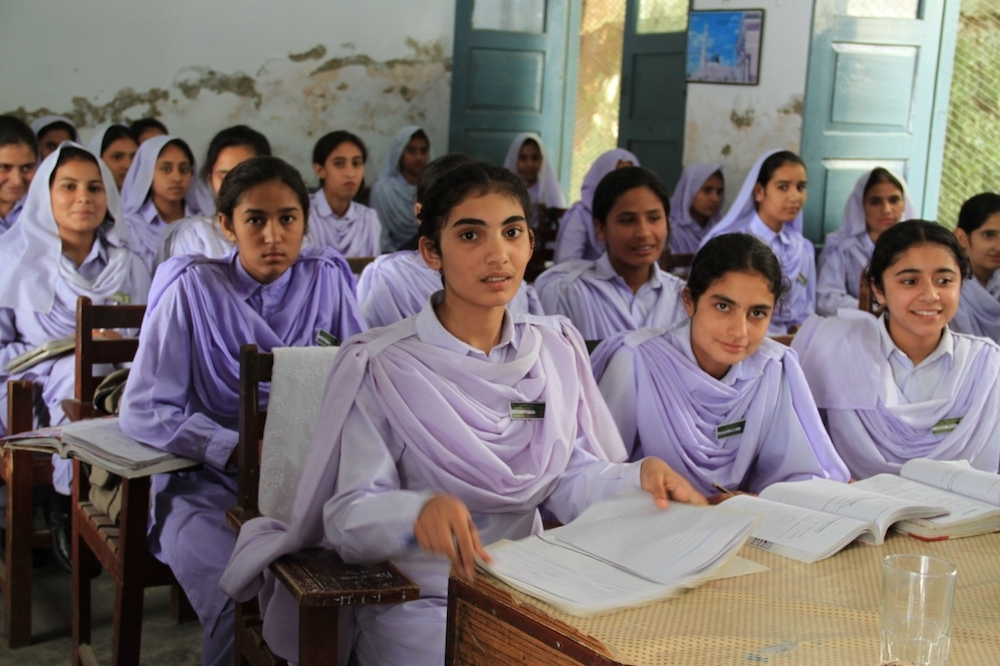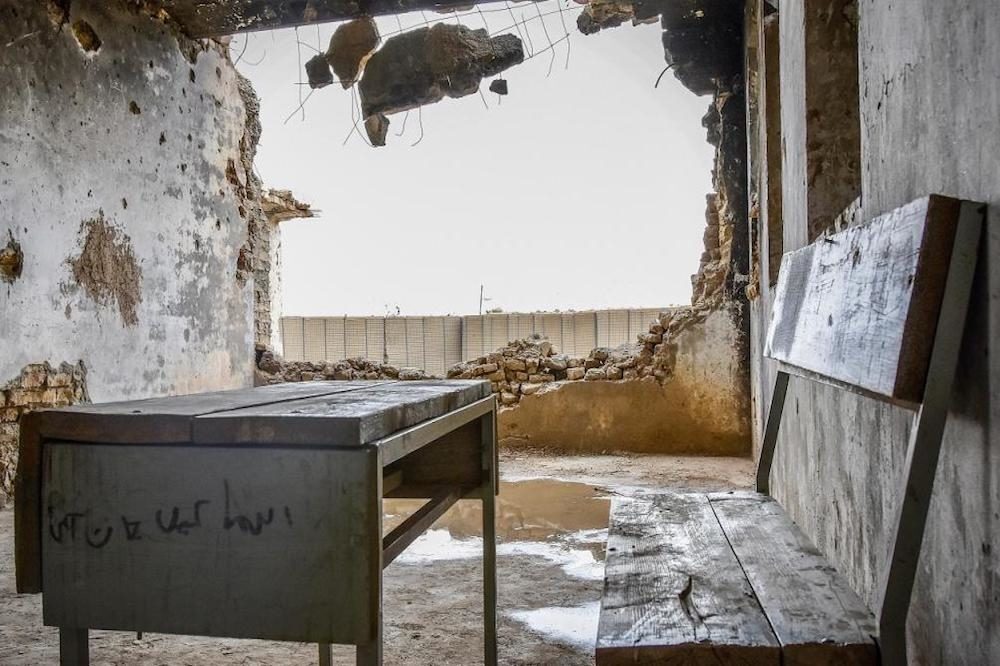
Five things you need to know this week about global education

Children in conflicts, Girls' education
A shocking and deadly attack on a school in Cameroon and the benefit of girls' education to countries' economies are in our roundup.
Keeping girls in school is worth billions
Making sure all girls are finishing secondary education by 2030 could boost the gross domestic product (GDP) of developing countries by 10% on average over the next decade, according to a new report.
Every $1 spent on girls’ rights and education would generate a $2.80 return – equivalent to billions of dollars in extra GDP, said the study by Plan International and Citi’s Global Insights team.
“Covid-19 recovery plans that prioritise investment in girls’ education and well-being will help communities and economies build back better and stronger,” said Anne-Birgitte Albrectsen, chief executive of Plan International.
About 130 million girls worldwide were already out of school before the pandemic, according to UNESCO, which said more than 11 million may not return to classes.
The new report – based on a study of eight developing and emerging-market nations, including India, Egypt, Uganda, Bolivia and Laos – called for a “holistic” approach with measures spanning education, health and violence prevention.
“Eradicating barriers to girls’ education and development may hold the key to achieving many of the UN Sustainable Development Goals,” said Andrew Pitt, Citi’s global head of research.
Seven children killed in Cameroon school attack
Gunmen stormed a school in Cameroon and opened fire over the weekend, killing several children and wounding more. https://t.co/xY4ghSZzbE
— CNN International (@cnni) October 26, 2020
Seven children were killed and 12 injured when gunmen stormed a school in Cameroon and opened fire.
The attack on the school at Kumba in the South West Region, where separatist insurgents have been battling government forces since 2017, has drawn widespread condemnation.
“I blame the government for everything that is happening,” said Claude Ngwane, whose 12-year-old daughter Renny became the seventh victim when she died from her wounds. A witness said there were 12 gunmen on four motorbikes, one armed with a rocket launcher.
UN Secretary-General Antoñio Guterres said he was shocked and added: “Attacks on education facilities are a grave violation of children’s rights.”
Attacks in Afghanistan and Pakistan

Education has been under attack in Afghanistan for years (NRC)
A suicide bombing at an education centre in Afghanistan’s capital Kabul killed 24 people, including teenage students and wounded 57 others.
Most of the victims were students aged between 15 and 26. The Taliban and Islamic State both claimed responsibility for the attack on the centre, which has provided tutoring to give thousands of children a pathway to higher education.
In the Pakistani city of Peshawar, a bomb blast killed at least seven people and wounded more than 80 at a religious school for mainly adult students. Four children were among the injured.
“Education is the fundamental right of every girl and boy, everywhere,” said UNICEF’s Pakistan Representative Aida Girma. “Schools must never be targeted.”
Children in poorest countries lose more schooling
Schoolchildren in low-& lower-middle-income have already lost nearly 4 months of schooling since the pandemic hit.
Out now: Our joint report with @UNICEF & @WorldBank gives insights on the alarming impacts of #COVID19 on education: https://t.co/Toyj67MutZ #PowerEducation pic.twitter.com/k981sWDqXZ
— UNESCO ????️ #Education #Sciences #Culture ???????????? (@UNESCO) October 29, 2020
Schoolchildren in low-and lower-middle-income countries have already lost nearly four months of schooling since the start of the pandemic, compared to six weeks of loss in high-income countries, according to a new report from UNESCO, UNICEF and the World Bank.
It also found that of 79 low-and lower-middle-income countries, nearly 40% have either already experienced or anticipate decreases to their country’s education budget for the current or next fiscal year.
More than 90% of high- and upper-middle-income countries that responded to questions required teachers to continue teaching during school closures, compared to less than 40% of low-income country respondents.
The report compiled findings from surveys on national education responses to Covid-19 carried out in nearly 150 countries between June and October.
Schools stay open despite virus surges

Schools in France and Germany can remain open as long as they stick to social distancing and hygiene rules (UNICEF)
France and Germany are determined to keep schools open despite going into new lockdowns to deal with a second wave of the pandemic.
French President Emmanuel Macron said most schools will remain open, while German schools and daycare centres can continue to operate as long as they stick to social distancing and hygiene rules.
Bulgaria said high school and university students will move to online study for two weeks. Tunisia has suspended schools as it tries to contain a rapid surge in Covid-19 cases, with hospitals nearly full.
In the United States, public schools in Los Angeles will not reopen their campuses for in-person learning until January at the earliest.
More news

